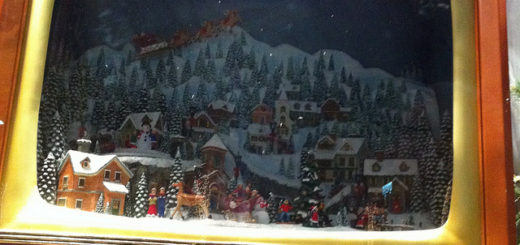Greener Grass @Nashville Film Festival
Nashville Film Festival Coverage via Jason Spark, Our Man in Nashville
Film festivals don’t show movies that are guaranteed box-office smashes. Superheroes and Disney are not present. That means, or tends to mean, that festivals show films aiming for something other than the conventional—in a word, there are films shown at festivals that could be dismissed as weird.
Greener Grass could be dismissed as weird. In fact, I’ll just go ahead and say it: it is weird. That is not in of itself a negative. It’s entirely possible to walk away from a bizarre film and, after giving it time to sautee in one’s mental skillet, to see a rhyme and reason behind the strange elements. I think I did finally decide what was happening in Greener Grass; what I’m not sure of is why it happened or needed to happen.
Greener is the brainchild of Jocelyn DeBoer and Dawn Leubbe, who wrote and directed, and star in the film; they play Jill and Lisa, who are moms, wives, and residents of a subdivision where everything is…flawless, in a forced and surreal way. Couples wear matching outfits, all the adults wear braces, and no one drives an actual car—everyone has a golf cart. No explanation is ever given for any of this.
Nor is any explanation ever given for the equally bizarre behavior of the characters. In the opening scene, Lisa Wetbottom (Leubbe) gushes over the baby that Jill Davies (DeBoer) has recently had. Jill’s response: “Do you want her? She’s great!”
Thus it is that Lisa has a new child. In the following scene, we meet their husbands; Lisa is married to Dennis (Neil Casey), and Jill is married to Nick (Beck Bennett, of SNL fame). They should all be able to remember this—they’re in matching outfits, and, as I said, they’re married—but each husband gives a long, protracted kiss to the wrong spouse, a moment that both couples politely laugh off.
At play here, I suppose, is the unrelenting politeness that seems to dominate this world, coupled with an unrelenting fear of unworthiness. Both couples are undyingly polite to each other, and both couples are embarrassed by their children (save for the baby given away in the first scene.) Jill and Nick struggle with their son (played by a girl, Asher Miles Fallicia, which is never acknowledged,), who begins cursing like a sailor after an accidental viewing of a TV show called Kids With Knives. Lisa and Dennis, meanwhile, are loath to claim Julian (Julian Hilliard), who has no talent at sports, doesn’t even attempt to have talent at music, is spoken to very slowly by his teacher, Miss Human (the excellent D’Arcy Carden, AKA Janet on The Good Place), and who, for reasons neither clearly defined nor remotely explained, turns into a dog.
What plot could be said to exist stems from the murder of a yoga instructor and the attempt to solve this murder; the killer is most likely a character we don’t see at first, who seems to lurk in unoccupied golf carts and laugh maniacally at the principals while breathing heavily. When we finally see this person, a large, middle-aged man dressed exactly like Lisa (again, for reasons neither clearly defined nor remotely explained), he is driving Lisa out of her own house, claiming that he is Lisa, and she isn’t; the trauma causes Lisa to break. She leaves the neighborhood, her golf cart zooming down a highway, and as she drives, she removes her own braces via the set of needle-nose pliers she happens to be carrying. She finally stops at what she says is the house she grew up in, now inhabited by an understandably confused black woman and her two children—one of whom leaves with Lisa, mainly because Lisa insists that the girl is her child now.
As you have read my synopsis, your reaction has likely been something along the lines of, “do what now?”. If so, you’re not wrong. That doesn’t mean that this isn’t an enjoyable film; as inexplicable as much of it is, there are laughs throughout, and I never find myself disappointed by Beck Bennett or D’Arcy Carden. There still remains, though, the prevailing confusion as to what this is. The first theory I had was that it was maybe a parody of David Lynch, mocking the saccharine suburbia (and its dark underside) that he created for Blue Velvet. Fair enough, but if so…why, exactly? Why generate an entire feature film to parody a cultural footnote from 30 years ago?
Seeking clarity, I looked to other reviews of the film. Variety locked into the extreme politeness at play, seeing the film as an attempt to “undermine these well-to-do WASPs’ sense of propriety.” I can readily see that—what I can’t see is a reason for doing it, unless this is all meant as a parody of, perhaps, a particular lifestyle, or maybe a neighborhood close to where the two directors/lead actresses/writers grew up. To be blunt, I’m not in on the joke.






















